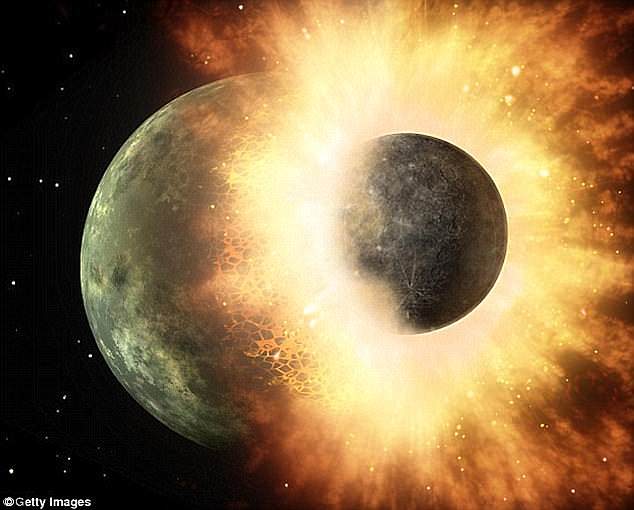A new study about the origins of the Earth’s oceans suggests there is even more chance of life existing beyond this solar system than previously thought, according to Daily Mail.
Scientists now know that liquid surface water was present on Earth before the planet-scale ‘giant impact’ that created the moon.
Previously it was believed some – if not all – of the water in the ocean came from later bombardments of asteroids and comets.
The fact that liquid water can survive catastrophic impacts by planet-sized bodies means it should be abundant on worlds in other star systems.
And the presence of liquid surface water in the form of lakes and oceans greatly increases the chances of finding life on these planets, experts believe.
Lead researcher Dr Richard Greenwood, said: ‘Because water is such a vital ingredient for life, we rightly see it as precious.
‘Our research shows that water is also extremely resilient and can survive an event as catastrophic as two planets colliding.’
Scientists believe the moon formed when Earth collided with a Mars-sized body known as ‘Theia’ around 4.5 billion years ago.
In a new study, scientists compared the oxygen composition of moon rocks brought back to Earth with that of volcanic rocks from the ocean floor.
They detected only a small difference between the lunar and terrestrial rocks.
If most of the water on Earth had arrived after the giant impact, the rocks should have distinctly different oxygen compositions.
The finding suggests that liquid water must have existed on Earth before its collided with Theia.
The giant impact is thought to have occurred about 100 million years after the solar system formed out of a swirling cloud of dust and gas.
Scientists know that many exoplanets in other star systems experienced similar high energy collisions early in their evolution.
This suggests liquid water could be abundant on exoplanets, making it more likely that life exists beyond our solar system.
Dr Greenwood added: ‘Because this worked for the Earth and the moon, it must also work for planets beyond our solar system.
‘Exoplanets with water on their surfaces may be much more common than we previously thought. And where there is water, there could also be life.’
N.H.Kh

